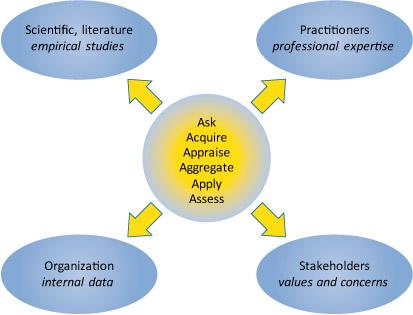1 Evidence-based practices
Over time, both organisations and people develop typical ways of doing of things. For organisations, this can often be referred as the culture – ‘the way we do things around here’ as Deal & Kennedy (1982) put it. This can include both spoken and unspoken rules, as well as the attitudes and behaviours of those individuals that are members of the organisation.
Sometimes, certain practices are continued because that is what members of the public expect or because it is “how it has always been done” even though there might be little evidence to support its continuation. Habit and intuition can play a crucial role in driving these behaviours as can perceptions of good judgement in terms of perpetuating behaviours.
In recent years there has been a growing focus on the use of evidence-based approaches in various fields. Put simply, it is no longer enough merely to point to gut feeling, perception or intuition in order to justify decisions which can have significant long-term implications for individuals or societies. Rather, a structured approach building on reliable evidence is required.
Evidence-based management
Evidence-based management is about making decisions through the conscientious, explicit and judicious use of the best available evidence from multiple sources by:
- Asking: translating a practical issue or problem into an answerable question.
- Acquiring: systematically searching for and retrieving the evidence.
- Appraising: critically judging the trustworthiness and relevance of the evidence.
- Aggregating: weighing and pulling together the evidence.
- Applying: incorporating the evidence into the decision-making process.
- Assessing: evaluating the outcome of the decision taken
to increase the likelihood of a favourable outcome.

